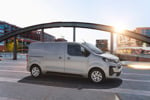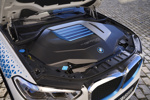VAT on cars and car-related expenses has always been a complex area and the amount of historic controversy has generated a raft of regulation which fundamentally affects fleet costs. This article considers the basic impact of VAT on fleet motoring decisions and is aimed at providing practical information for fleet decision-makers who may not also be VAT experts.
What is a car?
This ought to be a simple question but for VAT purposes, commercial vehicles have to fulfil specific criteria to avoid the VAT recovery blocks attached to cars. Relevant factors include minimum vehicle weights, payloads or the availability of glazed and roofed accommodation behind the driver.
Even if something looks like a commercial vehicle, it is well worth checking its specification before purchase to confirm it falls outside the VAT definition of a car, especially where contentious vehicles like double cabs are concerned.
Purchasing new cars
VAT, at 17.5%, will be payable on any new car purchased in the UK or imported from overseas. Once it’s clear that a vehicle is a car, the key issue is whether this VAT can be recovered by the purchaser.
Assuming the purchaser is registered for VAT and ordinarily entitled to recover it on other costs, VAT incurred on a car and any fitted accessories can only be recovered if that car is used exclusively for business purposes. Essentially, the purchaser must be able to prove a car is not available for private use.
In practice most cars will have some element of private use which will block the buyer’s entitlement to recover VAT. Even if the purchaser has a highly regulated policy, any VAT recovery on a car is likely to be challenged by Customs and Excise on principle. From Customs’ perspective, even permitting an employee to keep a pool car at home overnight before a business trip is considered sufficient to block VAT recovery.
If there is any private use, no VAT at all can be recovered on the purchase of the car. At present, there is no apportionment between private and business use, just a straightforward 100% VAT block.
VAT status and used cars
The use to which a car is put will determine its status for VAT purposes. In turn, that VAT status will determine whether VAT should be charged on the disposal of the car and hence whether there is any VAT available for recovery in the hands of a subsequent owner. If VAT has been fully recovered on a car, that car will be ‘VAT qualifying’. If a qualifying car is sold, VAT will be chargeable on its sale and recoverable by the purchaser under the rules outlined above.
If input VAT recovery has been restricted on a car at any point in its life, that car becomes ‘non-qualifying’. VAT will not be due on the sale of a non-qualifying car.
Leased cars
The 100% VAT recovery block does not apply to leased cars. Instead, where a leased car is available for private use, VAT recovery for a normal business will only be restricted by 50%.
Other motoring expenses
Curiously, other than fuel, the private use restrictions do not generally apply to peripheral motoring costs like repairs, maintenance or aftermarket additions as long as any expenditure is met by the business and has a ‘business use’.
Where fuel is concerned, the VAT system is again geared to reflect private use. If a business provides its employees with fuel for private journeys, it can block VAT recovery on the private fuel, make a charge to the employee (plus VAT) or apply the ‘fuel scale charge’.
The fuel scale charge is a VAT calculation required for each vehicle benefiting from free private fuel and results in an amount of VAT payable to Customs. Specific rates apply dependent on fuel type and engine size.















Login to comment
Comments
No comments have been made yet.